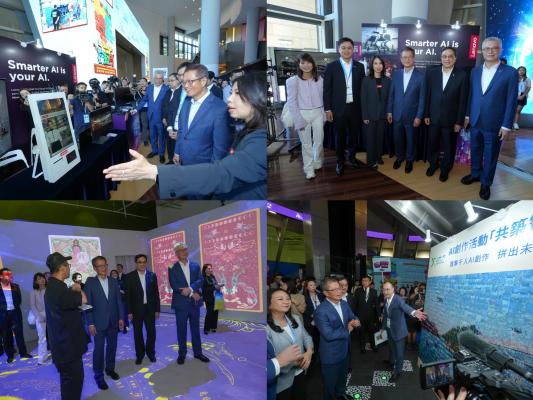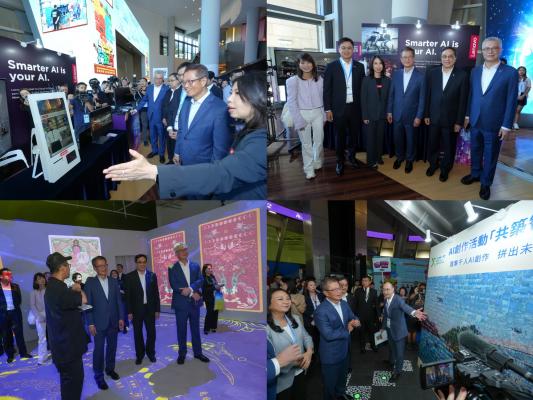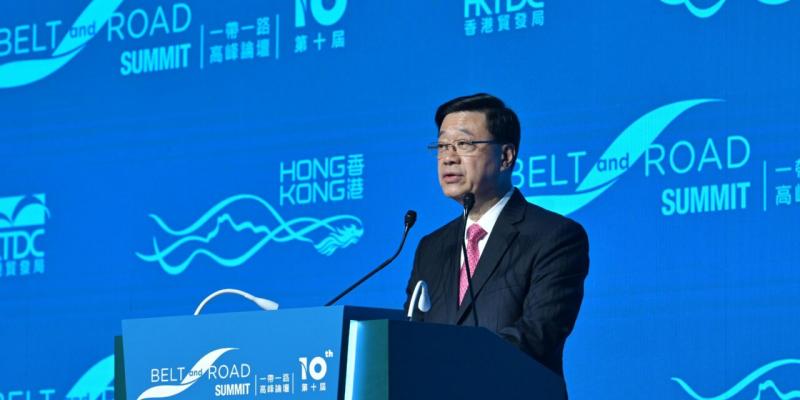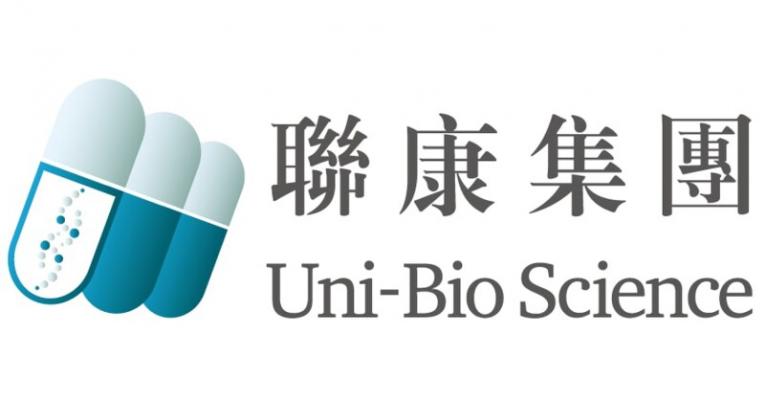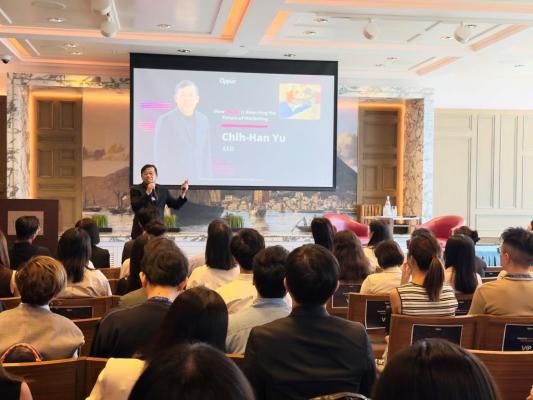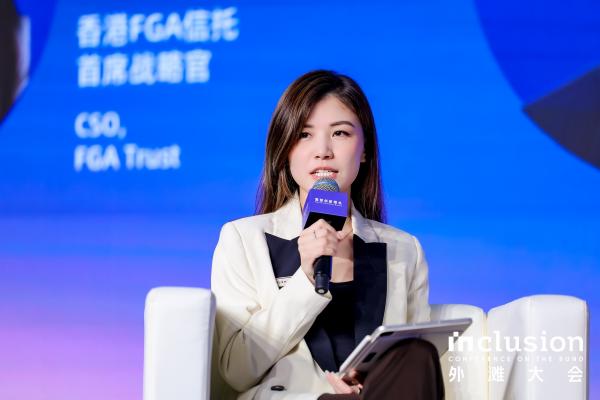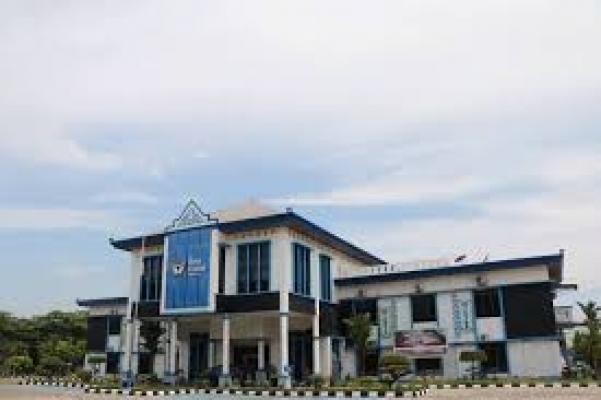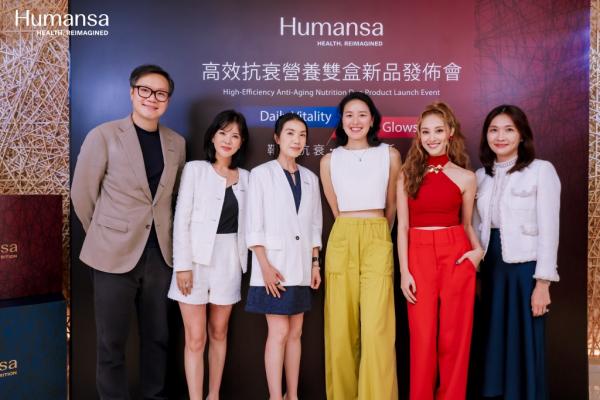- Home
- MediaOutReach
- 2nd GTI Forum on Digital Intelligence Convenes in Hong Kong Forging Global Consensus to Advance Inclusive AI Development
2nd GTI Forum on Digital Intelligence Convenes in Hong Kong Forging Global Consensus to Advance Inclusive AI Development
Jumat, 12 September 2025 | 13:38
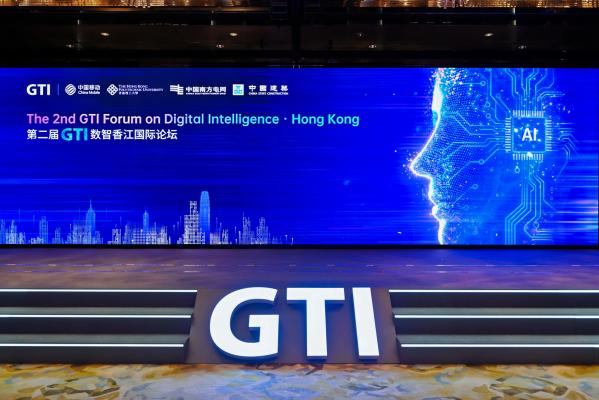
2nd GTI Forum on Digital Intelligence Convenes in Hong Kong Forging Global Consensus to Advance Inclusive AI Development
HONG KONG SAR -
Media OutReach Newswire - 12 September 2025 - The 2nd GTI Forum on Digital Intelligence was held in Hong Kong under the theme
“Openness, Sharing, Cooperation: Advancing Al Development”. The
event brought together Li Zhen, Vice Chairman of the State-owned Assets
Supervision and Administration Commission of the State Council (SASAC);
Sun Dong, Secretary for Innovation, Technology and Industry of the Hong
Kong Special Administrative Region Government; Zhao Houlin, Former
Secretary-General of the International Telecommunication Union (ITU) and
Honorary Chairman of the GTI Advisory Committee; Gim Huay Neo, Managing
Director and Chair of Greater China at the World Economic Forum; Gao
Tongqing, Chairman of GTI; Li Huidi, Vice President of China Mobile;
Mark Nitzberg, Executive Director Center for Human-Compatible AI at UC
Berkeley AI Research Lab; and Yannis Ioannidis, President of Association
for Computing Machinery (ACM). The forum also welcomed representatives
from ITU, GSMA, and other international organizations, scholars from
leading universities and research institutions worldwide, as well as
executives from more than 100 enterprises.
In his address, Sun Dong, Secretary for Innovation, Technology and
Industry of the Hong Kong Special Administrative Region Government,
highlighted Hong Kong's full commitment to advancing technological
innovation, actively integrating into the national development agenda,
and establishing itself as an international innovation hub through
policy support, infrastructure development, and international
collaboration. He underscored AI as a vital engine for high-quality
economic development, expressing Hong Kong's commitment to joining hands
with global partners to drive inclusive AI development. He highlighted
Hong Kong's ambition to serve as a frontier for AI research, technology
transfer, and talent, contributing to both China's AI strategy and
global AI progress.
GTI Chairman Gao Tongqing stressed that GTI is deepening global cooperation,
uniting consensus, and advancing the vision of “network-intelligence integration for inclusive AI.” GTI has launched the “5G-A×AI Integration Development Project” to identify landmark AI applications and innovations.
To contribute to global development, the Mobile Intelligence
Integration Index (MI³) has been introduced as a benchmark for advancing
network-intelligence convergence. The index is designed to help
stakeholders adapt to local conditions, leverage complementary
strengths, and implement targeted measures to bridge the
digital-intelligence divide. Gao further observed that over the past
year, AI development has demonstrated three defining trends: the
generalization of models, the customization of applications, and the
embodiment of intelligence. Looking ahead, he put forward three
proposals on behalf of GTI:
1. Jointly drive technological innovation to solidify intelligent foundations.
Bring together global industry, academia, research, and application
stakeholders; leverage the complementary strengths of East and West; and
use GTI's platform to address shared challenges.
2. Share open scenarios to empower diverse industries. Build and operate 5G-A×AI/6G open laboratories, actively open high-value industry scenarios, and co-develop replicable AI benchmark projects.
2. Share open scenarios to empower diverse industries. Build and operate 5G-A×AI/6G open laboratories, actively open high-value industry scenarios, and co-develop replicable AI benchmark projects.
3. Establish dialogue platforms to advance AI for good.
Foster constructive dialogue, leverage outcomes such as the MI3 Index,
and explore common ground on AI standards, safety, and governance to
promote human well-being.
Li Huidi, Executive Vice President of China Mobile, remarked that as a
founding member of GTI, China Mobile has consistently upheld the
principles of “openness, sharing, cooperation, and mutual benefit,”
contributing to the prosperity of the global ICT industry. In recent
years, China Mobile has positioned itself as a provider, integrator, and
a facilitator in the field of AI. Through its AI action plan, China
Mobile is driving faster innovation, and wider application of digital
technologies, contributing its strength to sustainable high quality
economic and social development. He outlined China Mobile's strategy of
advancing “AI for Life”, “AI for Production” and “AI for Governance”. To
shape the AI+ era, Li proposed three initiatives to ensure AI is safe,
fair, and beneficial:
1. Build world-class hubs for AI innovation. This calls for
deeper partnerships among research institutes and industry, and stronger
research into AI fundamentals, including mathematics, autonomous
collaboration, and intelligent decision-making. At the same time,
frontier fields such as spatial intelligence, embodied AI, and world
models should be actively explored, while 6G–AI integration is advanced.
The objective is to establish an original technology system capable of
supporting AGI (Artificial General Intelligence) and ASI (Artificial
Super Intelligence) in the future.
2. Accelerate AI adoption in real-world scenarios. This
requires progress at every stage, from idea generation and design, to
resource sharing and pilot demonstrations. With foresight and innovative
practice, faster adoption of AI can be achieved in areas such as smart
energy, intelligent construction, digital finance, and smart cities.
3. Harness AI for a better world. Guided by a human-centered
approach, diversity of languages, cultures, and regions should be
respected at every stage, from data collection and algorithm design to
product application, ensuring that AI contributes to social equity and
human well-being.
At the forum, China Mobile, together with GTI and the Zhongguancun
Institute of Ubiquitous-X Innovation and Application, unveiled the
“AI-Native 6G Open Testbed Hong Kong Node” and the achievements of
Beijing-Hong Kong 6G interconnection trials. The Hong Kong and Beijing
nodes will jointly serve as an international open 6G cooperation
platform under GTI, supported by over 20 institutions including the
University of Hong Kong, the Hong Kong Polytechnic University, the Hong
Kong University of Science and Technology, and the University of Malaya.
The Hong Kong node will help establish the city as a demonstration base
for 6G innovation and industrialization, while facilitating broader
international collaboration and knowledge exchange.
China Mobile and GTI also joined hands with more than 20 central
enterprises, leading ICT companies, and renowned scholars from the US,
Europe, and Asia to launch the “Global “AI+” Industry-Academia-Research
Ecosystem Cooperation Initiative”. The initiative calls for:
1. Joint Technology Innovation. Focusing on cutting-edge AI
technologies, network and AI integration, etc.
industry–academia–research collaborative innovation will be advanced to
accelerate the continuous progress of "AI+" technology.
2. Use Case Creation and Validation. Replicable and scalable
industry application templates will be developed to strengthen "AI+"
technology integration and scenario deployment capabilities.
3. Achievement Sharing. The "GTI 5G-A×AI 100 Commercial
Campaign" will be launched to boost cross-regional sharing of products
and solutions, ensuring that the benefits of "AI+" development are
broadly accessible.
4. Ecosystem Co-building. With the support of international
platforms such as GTI, global innovation networks will be expanded and
regular exchanges and cooperation fostered, building an open "AI+"
ecosystem founded on fairness, mutual trust, and win–win collaboration.
Mark Nitzberg, Executive Director Center for Human-Compatible AI at UC
Berkeley AI Research Lab, Yannis Ioannidis, President of ACM and other
global experts shared insights on AI development trends and cutting-edge
technologies.
Additional keynote speakers and panelists included Zhao Houlin, Gim
Huay Neo, Alexander Ntoko, Chief of Operation and Planning Department of
TSB at ITU; Laurent Audoly, Professor at Northeastern University;
Etienne Chaponniere, Vice President of Qualcomm; and Feng Junlan, Chief
Scientist of China Mobile. Executives and experts from China Southern
Power Grid, China State Construction, AMD, Intel, Siemens, Nokia, the
University of Malaya, and Deloitte. They engaged in discussions on AI's
global role, innovation progress, and solutions, aiming to advance AI
from theory to practice.
The forum also featured three sub-forums—"Intelligent Construction,”
“Smart Energy,” and “Convergence of Networks and Al.” More than 20
distinguished academicians and industry leaders from construction,
energy, telecommunications, and AI shared insights into AI applications
across diverse sectors, driving the deep integration of “AI+” with
economic and social development and empowering industries worldwide.
https://www.cmi.chinamobile.com/en/
BERITA LAINNYA

Sabtu, 13 September 2025 | 09:52
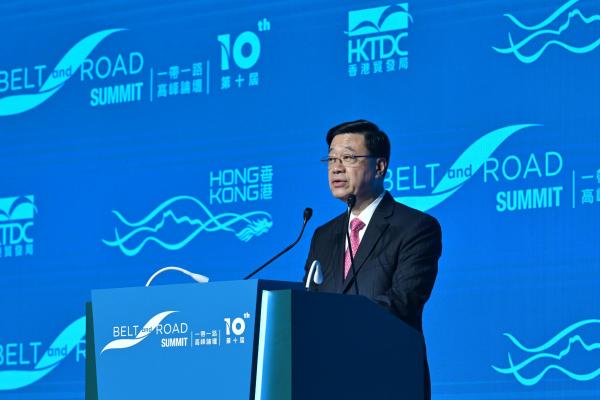
Sabtu, 13 September 2025 | 08:50
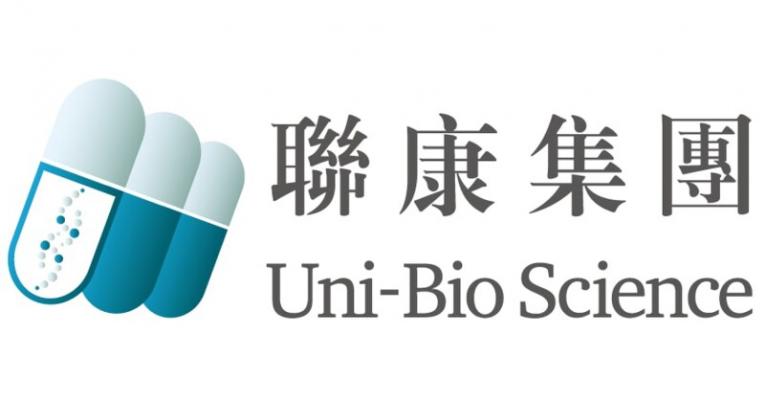
Sabtu, 13 September 2025 | 08:49
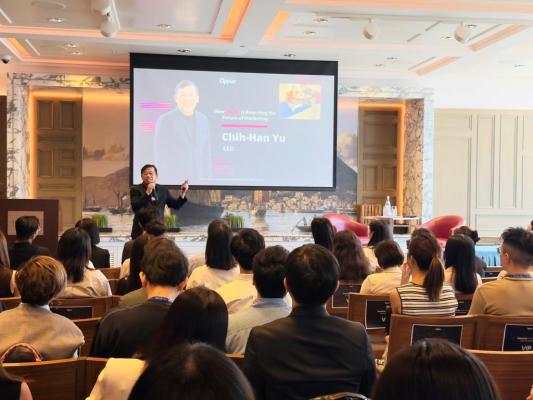
Sabtu, 13 September 2025 | 08:48
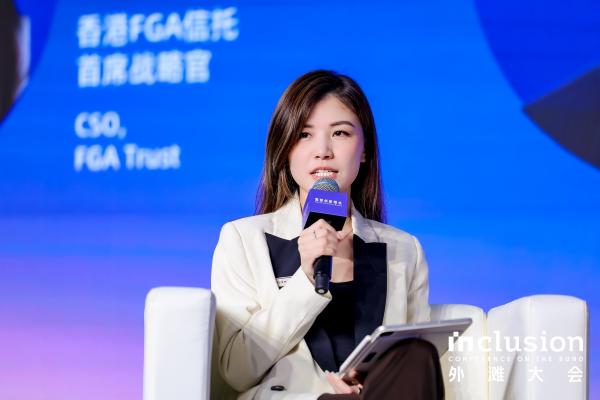
Sabtu, 13 September 2025 | 08:48
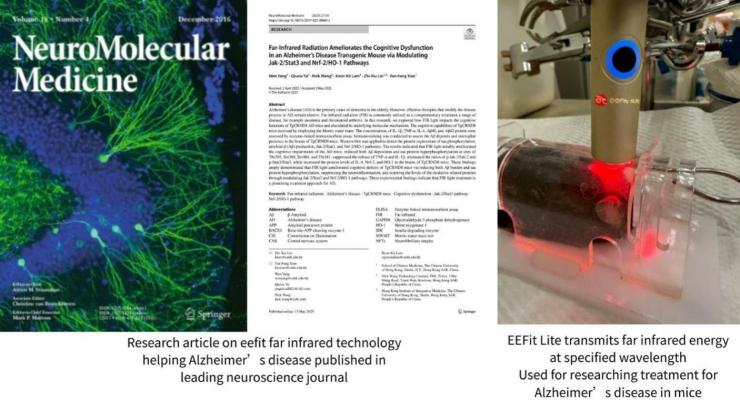
Sabtu, 13 September 2025 | 08:46
Sabtu, 13 September 2025 | 08:45

Sabtu, 13 September 2025 | 08:45

Sabtu, 13 September 2025 | 08:43

Jumat, 12 September 2025 | 13:40

Jumat, 12 September 2025 | 13:39


